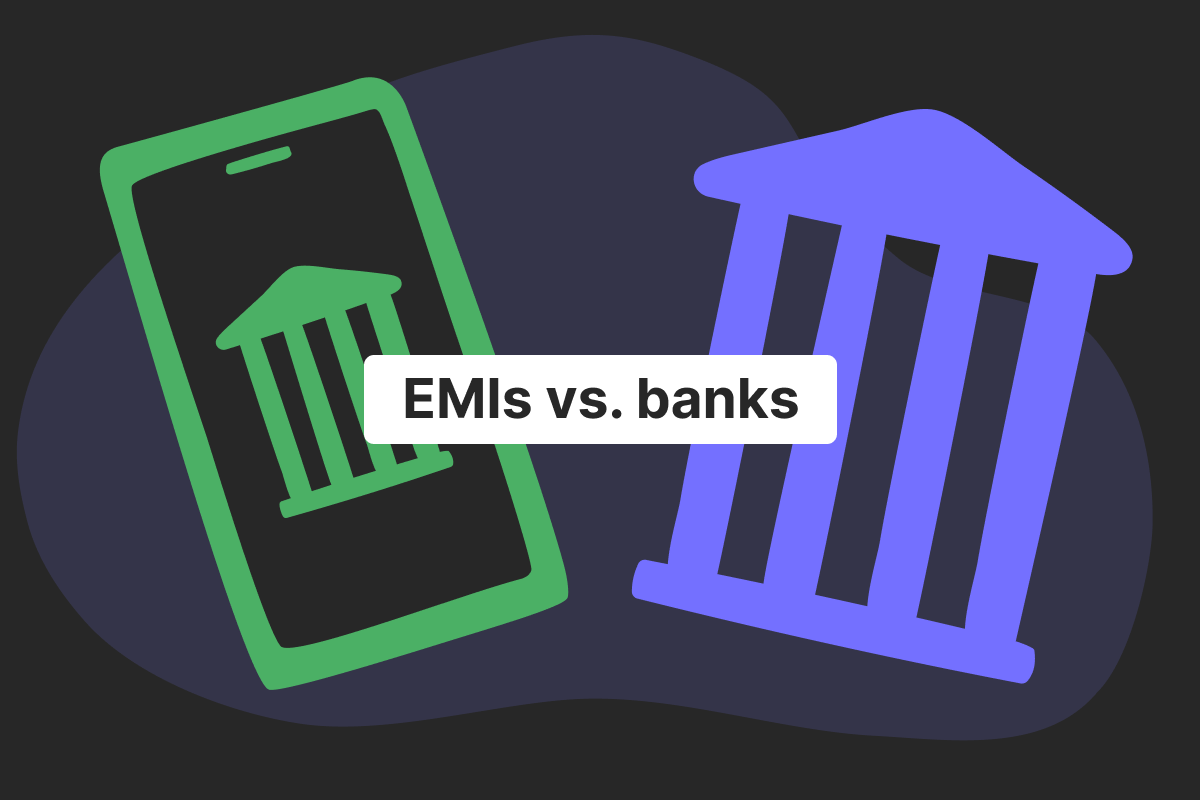Italian SMEs face a series of new challenges as the financial landscape changes. Their reliance on traditional banks for loans and other services is being put to the test, as the demands of the modern business environment increase.
Fintech institutions provide a modern solution to help carry out the digital transformation of the finance SME in the Italian scene. These companies provide faster services and more inclusive access to financial tools, as well as credit options.
We’ll be looking at areas like digital landing, what fintech platforms offer, and the future of finance SME in Italy. Find out what a merchant account is, why these accounts matter for Italian small businesses, and how you can open one.
Understanding the SME finance gap in Italy
Small and medium-sized companies account for a considerable percentage of the Italian economy. In fact, according to the 2024 Investment Climate Statements study done by the U.S. Department of State, companies with fewer than 250 employees account for over 99% of all the businesses operating here. It represents a considerable level of investment and the livelihood of millions of Italians.
The European Investment Fund supports these companies with initiatives such as InvestEU as part of their central mission. Yet they often encounter barriers when seeking financing or the right type of account. It leaves them underfunded and without sufficient resources.
The European Investment Bank Group (EIB) is an EU initiative to support Europe’s micro companies. It’s designed to boost job numbers and growth, among other goals. The EIB borrows money from capital markets and creates an investment plan to support worthwhile causes through strategic investments. However, it doesn’t fill the funding gap that many start-ups have from their difficulty in getting the right bank accounts for their needs.
Unlike large companies, many SMEs and start-ups rely heavily on traditional bank services like credit facilities to grow. Loans play a crucial role in their ongoing growth and development, but accessing credit can prove to be extremely difficult.
Tightened monetary policies and limited access to equity financing are among the reasons that traditional banks can’t always provide the answers that Italian SMEs need. According to the OECD Financing SMEs and Entrepreneurs Scoreboard 2025, SMEs across Europe continue to struggle to get access to the funds that they need.
How fintech is transforming SME financing
Fintech solutions now give Italian SMEs options that didn’t exist in the past. The following are some of the resources they can access to help fund their expansion.
Digital lending platforms give companies a new, slicker way to access loan equity for fresh investment ideas. This type of fintech offers easier online account set-up and access to loans without the need to visit a branch.
Alternative credit scoring models use big data and machine learning to help SMEs. Rather than the traditional lending process carried out by banks, these models use data from open banking and electronic invoicing to underwrite credit risks on new loans.
SMEs are also using crowdfunding and peer-to-peer finance on a large scale to find investors. They allow small businesses to get their ideas out to the public and look for support from investors. It can prove to be a useful alternative to venture capital funding from institutional investors and other capital markets.
Embedded payments and cash flow tools now allow startups to handle their money more efficiently. Long-established bank processes no longer suit many modern businesses. These digital tools are ideal for supporting SMEs that carry out online business.
The innovative processes listed here all help to boost efficiency and accessibility. As the business world continues to change rapidly, SMEs need to access finance services and alternative funding processes that suit them.
The role of fintech in empowering Italian SMEs
Fintech supports underserved small and medium-sized businesses. It does this in a variety of ways, such as by giving faster access to funds when needed for payment or investment purposes. Better liquidity in terms of financial resources is vital for these companies, while reduced bureaucracy saves them valuable time.
Access to digital banking allows Italian SMEs to scale their operations globally. Businesses can make international transfers and receive payments from customers worldwide more easily than ever before. It allows a smoother flow of private equity for SME financing as well as payments.
Open an account
in Genome online
Digital banking and alternative finance solutions
Comparing fintech business accounts with traditional banking helps us focus on several key areas where SME banking in Italy offers significant benefits. It lets us focus on practical tips for making the most of these accessible bank accounts.
Fintech business accounts are generally digital only. It allows them to open at any time, with a faster and smoother opening process. The know your customer (KYC) process can also be carried out effortlessly online rather than having to visit a physical branch. It saves time for SMEs, particularly in rural parts of Italy and where there may be no local branches nearby.
Multi-currency IBANs allow fast, efficient transfers across Europe through fintech platforms. There’s no need to constantly change funds from one currency to another. SMEs can open various accounts based on the currencies they need to use. A virtual IBAN can be used to accept incoming international payments.
Lower fees for small and medium-sized businesses. Their economic growth is helped by fintech approaches, rather than high fees holding them back. The ability for SMEs to check their transactions in real-time, 24/7, also lowers the risk of unexpected charges being made or payments failing.
Simplified transfers make life easier. There’s no need to contact a branch or carry out a complicated process. The entire process is done online in a short time. Their funds quickly arrive in any part of the world, meaning the working capital flows more easily.
Recent developments in digital banking have been driving SME globalization. Italian companies can look for new opportunities and investors worldwide thanks to these slick processes.
How fintech improves access to credit for SMEs
Getting hold of funds quickly has always been a major concern for businesses in Italy. One of the main areas of innovation has been the growth of open banking and alternative data sources.
It has allowed businesses to access loan funds more easily than with traditional bank loans or by tapping into the main capital markets and alternative investors for funds. Among the main types of innovation, we can see the development of automation and artificial intelligence (AI). It allows fintechs to quickly evaluate credit applications from SMEs.
Partnerships between fintechs and traditional banks are helping boost the digital innovation of Italian small and medium enterprises. It is a way to give companies the best new technology while allowing them to work with established financial institutions.
Challenges and opportunities ahead
The future of banking for Italian businesses includes some challenges. Among them are the regulatory hurdles that need to be overcome. Issues such as data protection and cybersecurity need to meet EU objectives and standards.
Ongoing innovation in the Italian fintech ecosystem promises more growth in the future.
However, it needs to be done bearing in mind the legal framework, tax incentives, and other key challenges. Any finance SME in Italy needs to comply with current laws and be aware of future changes. They should also tie in with the European Investment Fund ideas and investment plan.
Further investment is needed in the sector to support the growth achieved so far. It will enable further development and expansion across Italy, giving more SMEs easier access to digital funds to invest and grow.
The future of SME finance in Italy
Other upcoming trends could have a major effect on SME finance in Italy. They include the following points.
A digital euro. The launch of a digital currency in the EU has been driven by the European Central Bank (ECB). The next step in the timeline is legislative approval in 2026 by the European Commission, Parliament, and Council. SMEs may find it more convenient to handle their funds digitally at all times.
AI-based lending is one of the key areas of growth in the fintech sector. Using machine learning makes the process of approving loans for small and medium-sized enterprises much faster. The key benefit is that the funds reach the company needing them a lot more quickly. They can then invest their capital swiftly, allowing their investment to make an immediate impact.
Blockchain finance has already added speed, security, and transparency to the financial world in recent years. More innovations should ensure the growth of this sector. Real-world tokenized assets, smart contracts, and stablecoins are among the top areas where fintech companies in Italy and beyond are investing heavily.
The continued growth of fintech will see the SME finance gap narrowed further. Innovative solutions for a modern, digital world will continue to help Italian SMEs to find the banking solutions that they need to face the future with confidence.
The online financial service provided by Genome is designed to meet the needs of small and medium-sized enterprises. As a regulated electronic money institution (EMI), we ensure that you get a reliable and safe way of banking that meets all of the current legal requirements in Europe.
Multi-currency business accounts: Open EUR, USD, GBP, and other currency accounts with dedicated IBANs to manage local and cross-border payments from one dashboard.
International transfers: Send and receive SEPA Instant/Credit and SWIFT payments with transparent fees for partners and clients worldwide.
Merchant accounts & payment gateway. Accept SEPA Instant/Credit Transfers from customers with fast settlements directly to your Genome business account.
Virtual and physical Visa business cards. Issue multiple cards for teams, link them to chosen currencies, set limits, and use them globally online and offline.
Shared business account access. Assign roles and permissions to teammates to securely manage payments, reporting, and account operations together.
Open an account
in Genome online






